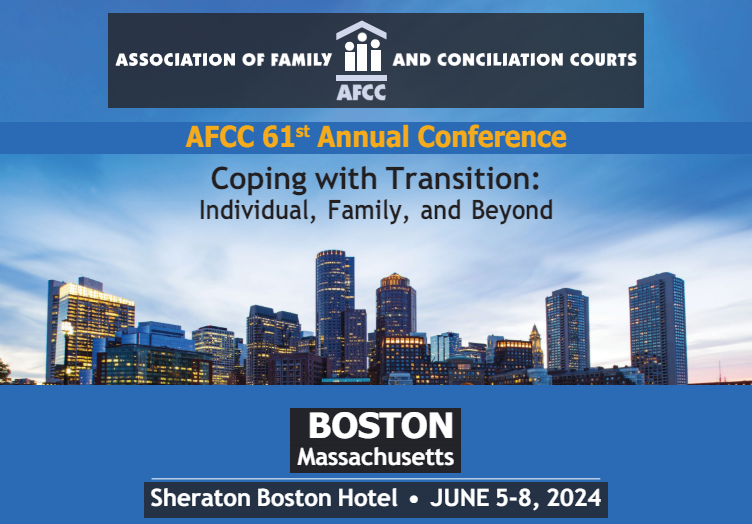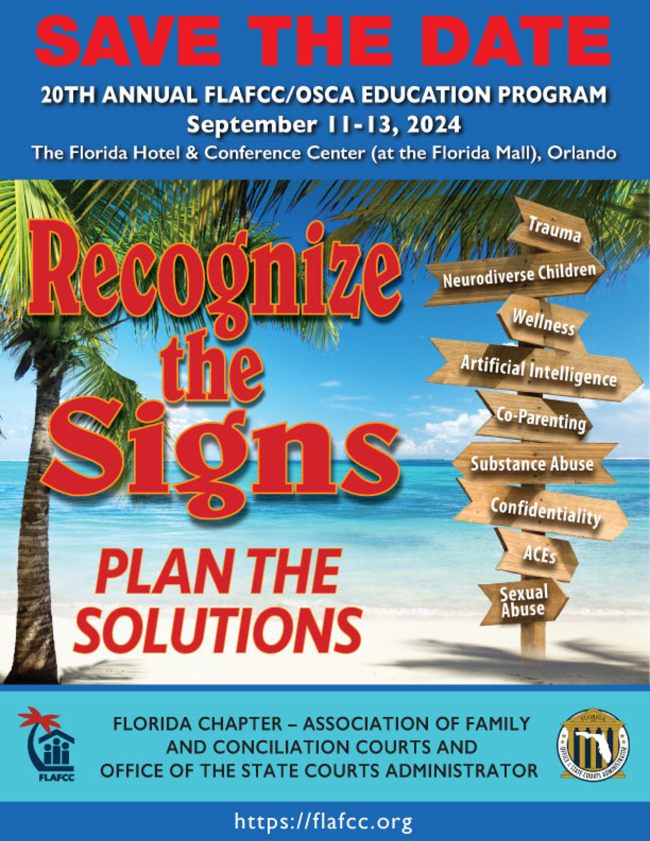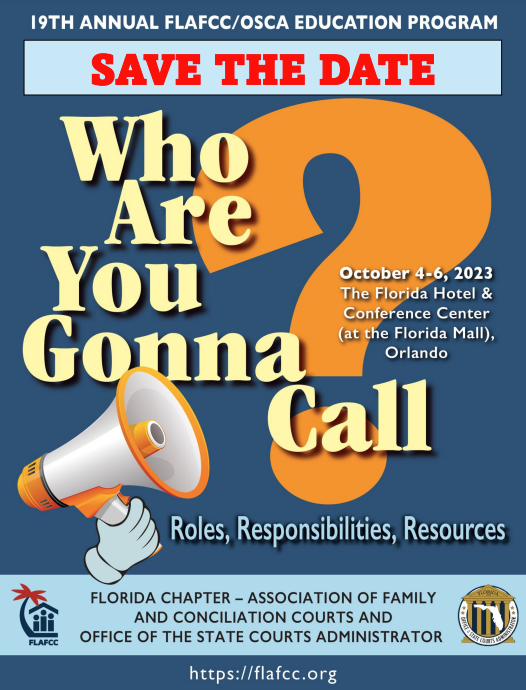Written by Linda Fieldstone, Judge Michelle Morley and Sue Bronson
ACR/FLAFCC Elder Justice Initiative Co-Chairs
Do you know any families embroiled in conflict about the care and safety of an aging loved one? Do you have clients where family conflict is jeopardizing the care or safety the older adult that they say they are protecting? Have you heard about eldercaring coordination?
Sol lies still in his bed, wanting desperately to fall asleep. It is after midnight and he is so tired. A tear trickles from the corner of his eye into his ear. His brain is still active, doing its best to process what happened at dinner tonight. Another explosion between his children. Sol tried to interrupt; they will not listen, continuing to yell about him as if he wasn’t even there. Sol knows that they love him and don’t understand how they are breaking his heart – when was the last time he saw all his grandchildren, their visits halted by all the in-fighting. Some paper arrives that says that Sol must go to court, that some people were appointed by the Court to examine Sol’s capacity and report back to the court on what they find. Sol is so confused and now he is scared. What does all this mean? Why does an 84-year-old man have to go to court when he has never done anything wrong?
Eldercaring coordination is a solution.
We traditionally think of young parents raising children when someone talks about Family Court, but families include every one of every age from “cradle to grave.” FLAFCC strives to make family experiences in court positive, to put families in better shape after litigation than they were in when it started. That’s why FLAFCC supported, encouraged, sponsored, and helped launch the development of Eldercaring Coordination, an alternative dispute resolution process court ordered for aging families experiencing conflict to address nonlegal issues, particularly regarding the care and safety of an aging loved one. In 2021 Florida enacted Florida Statute s. 44.407, the first state statute in the nation on eldercaring coordination. The Florida Dispute Resolution Center, substantiating Florida as a leader in dispute resolution processes, has posted an Eldercaring Coordination Almanac which will be updated with more information as available.
Eldercaring coordination is based on the same premise as parenting coordination: that families in higher conflict need a dispute resolution process catered to their specific needs and characteristics. These are the minority of families that take a majority of the court time and resources, often hammering each other with nonlegal issues to battle out in court. Eldercaring coordination addresses these nonlegal concerns in a timely fashion and private forum, helping family members:
· reduce conflict so they can work together more productively and focus on the aging person’s care;
· Support the aging person’s self-determination to the extent possible;
· Promote safety by monitoring at-risk situations; and
· Develop a support system for the aging person and family.
Eldercaring coordination is a process, not an event like mediation, and requires a distinct skill set because of the degree of family conflict involved. Mediation is for parties that are functional and recognize that their issues are resolvable. Eldercaring coordination is for parties whose emotional conflict is crippling their ability to focus on the real issues. When they attempt to bring up historic disputes, the family is directed to re-focus on and use their personal strengths to meet the needs of their aging loved one. Appointing the eldercaring coordinator (EC) for a two-year term is recommended in order to respond to the transitions of the aging person and avoid adversarial actions that ramp up family discord. As you can imagine, it takes the EC significant time to peel back the layers of conflict within the family and develop a trusting relationship with the family members. Multiple sessions of eldercaring coordination are needed to help the family members learn how to communicate and negotiate with one another without going off track into historic family turmoil. You can identify a family who would benefit from eldercaring coordination when:
- The elder is isolated, with a family member(s) or guardian restricting access to and information about elder.
- The family is arguing about elder’s care, safety, capacity, guardianship, or use of elder’s assets.
- There are report(s) to Adult Protective Services involving family conflict or miscare.
- Mediation is ineffective as family members use it as another opportunity to attack each other.
The Court can ONLY appoint Eldercaring Coordinators (ECs) meeting the statutory qualifications. Florida Judicial Circuits qualify eldercaring coordinators (ECs) and can place them on a roster similar to parenting coordination. Most ECs will work remotely, as it is common for family members to reside outside the elder’s jurisdiction. In an independent preliminary study by Pamela Teaster and Meagan Dolbin MacNab, both prestigious researchers from Virginia Tech, 100% of judges responding to a survey of cases initially referred to eldercaring coordination as being “very effective.” In addition, ECs often identified numerous safety issues per family, protecting the older adult from various risks and continued exploitation and abuse. The order of referral to eldercaring coordination enables the referring judge to specify non-legal issues for the EC to address and any protective measures the judge wants implemented in a case that involves elder abuse or domestic violence. The parties can save time and money as the EC’s fees are shared according to the allocation on the court order. Most ECs work on a sliding scale fee when affordability is an issue, which is rare since the court order specifies the allocation of fees shared by family members. In addition, Sunshine Health has formally recognized high conflict in families as a health issue for older adults and will provide 10 hours of eldercaring coordination statewide to its Medicaid members, reducing the cost to just $25 per hour split according to the court’s allocation.
Why is eldercaring coordination relevant to FLAFCC and its members? Just like in Sol’s family, children are the by-product of the alliances formed, sometimes even restricted from seeing their grand or great grandparent. Children hear and then model the explosive rhetoric in families engaged in conflict. Multigenerational conflict poses negative outcomes for future generations, reducing effective coping skills and decreasing their social capital and support systems. Eldercaring coordination can protect those most vulnerable, young and old alike, from being in the middle of the conflict. When family members learn to work together for the sake of their loved ones, future generations can embrace a legacy of peace.The values promoted in eldercaring coordination uphold the values of FLAFCC – your values. Please check out the website www.eldercaringcoordination.com, contact us with questions you may have, and talk amongst yourselves about cases that may benefit from a process that: focuses on individual and family strengths rather than the win-lose mentality of an adversarial process; effectuates more timely responses and avoiding crowded dockets; saves time and money. Attorneys have acknowledged that legal issues flow more productively through the court when the emotionality of the family members is deflated. Guardians have reported better informed decision-making occurs with the input of family members focused on the elder, rather than past unresolved issues. Perhaps you are interested in becoming an eldercaring coordinator. You would see that as family members begin to apply skills they have learned in the process, they are able to build a more constructive support system and utilize mediation other services related to older adults. Change is hard and change is slow; meanwhile older adults in the middle of conflict are suffering, and so are the younger generations witnessing dysfunctional conflict. The Eldercaring Coordination Initiative extends appreciation to FLAFCC for its ongoing support. Help us spread the word that eldercaring coordination is here, statutorily recognized in Florida and ready to help.





